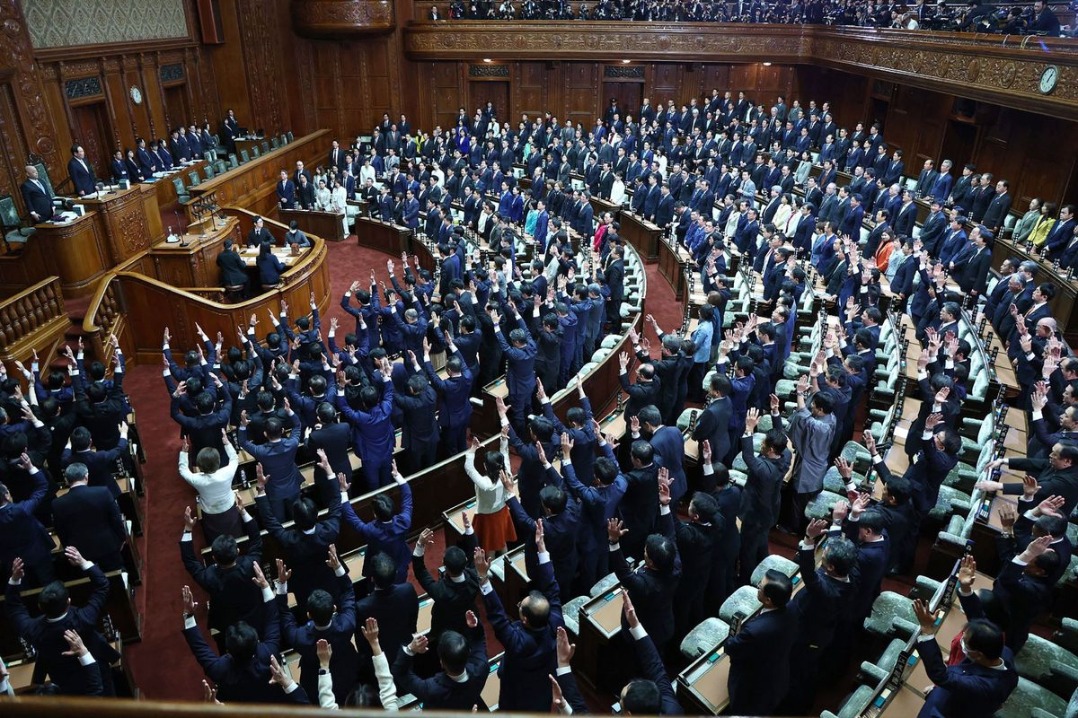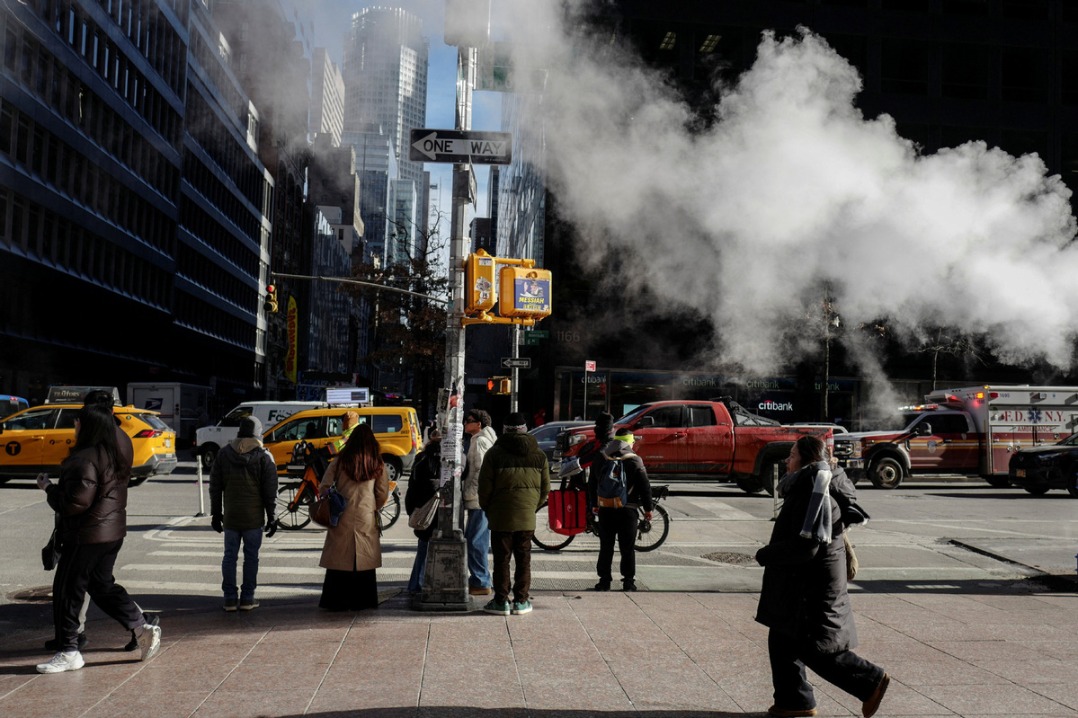Conflict viewed via China-US lens
Washington-Beijing ties multifaceted with stress on cooperation: Ex-envoy

A former US ambassador to China, in a recent talk, provided insights on the conflict in Ukraine through the lens of the US-China relationship.
Nicholas Burns, speaking at a June 3 event hosted by the John L.Thornton China Center at the Brookings Institution titled "The United States, China, and the War in Ukraine", explored US-China dynamics in the context of the ongoing Ukraine-Russia conflict.
"We have to live in peace with China. We're not trying to drive this into a conflict that would be both irrational and catastrophic potentially," he said. The discussion was part of the Global China Project and examined how the two powers navigate global crises.
The moderator, Jonathan Czin, a Brookings fellow, framed the event as "how the United States and China might influence the trajectory of the war in Ukraine and more broadly, how Washington and Beijing can navigate rising strategic tensions".
Earlier this month, Moscow and Kyiv held a second round of bilateral talks in Turkiye, following Ukrainian drone strikes on Russian territory. Russia responded with one of its largest airstrikes on Kyiv, targeting civilian and energy infrastructure.
Despite a prisoner swap on Monday, involving wounded soldiers, no progress was made over ceasefire at talks in Istanbul, with both sides intensifying military action.
Burns, now the Roy and Barbara Goodman Family Professor at Harvard University's Kennedy School, served as US ambassador to China from 2021 to 2025 and previously as ambassador to NATO and Greece.
Burns described the US-China relationship as multifaceted, with emphasis on areas for cooperation. "One of them is climate change," he said.
On fentanyl, Burns said, "They arrested, I think, over 300 people involved in the black-market trade. They took down online platforms. They classified certain precursors of chemicals as prohibited for export."
On the impact on Russia, Burns said there are some issues where the interests of the US and China align.
Burns highlighted China's global economic influence, adding, "China has been so effective with the Belt and Road Initiative."
China has become the leading trade partner of all the ASEAN countries, with the exception of Singapore, Czin said.
Open channels
On people-to-people exchanges, Burns stressed the importance of open channels for Chinese students and visitors.
"If we decouple the two societies and say no more tourists, no more business visitors, no more visas for Chinese students, we drive it to the psychology of the old Cold War," he said. "I can't imagine teaching (global politics) without Chinese students in the country."
"Our American students get an intense familiarity with people that they study alongside or become friends of. … And so there's something positive," Burns said.
Czin reinforced that, saying that such exchanges foster "an intense familiarity" for US students with their Chinese counterparts.
Burns also addressed visa concerns, saying "it is unclear what Secretary Rubio meant" when he talked about "aggressively" revoking Chinese student visas.
On May 28, US Secretary of State Marco Rubio made the comment about the visa and also said there would be increased scrutiny of visa applications from the Chinese mainland and Hong Kong.
US President Donald Trump initially backed the move, but on June 11 he posted on Truth Social that an agreement was reached to allow Chinese students to attend US colleges and universities, "which has always been good with me".
When someone in the audience asked about economic tools like sanctions to influence Russia's approach to negotiations, Burns said sanctions could be "a pretty blunt instrument and the overuse of sanctions can cause other problems".
yifanxu@chinadailyusa.com
































